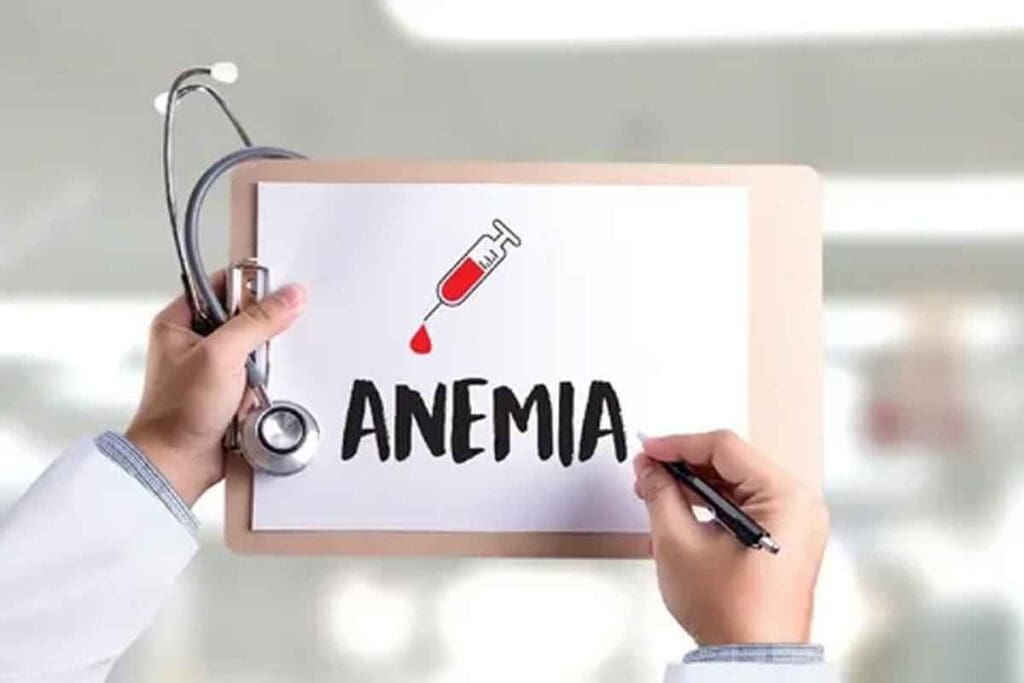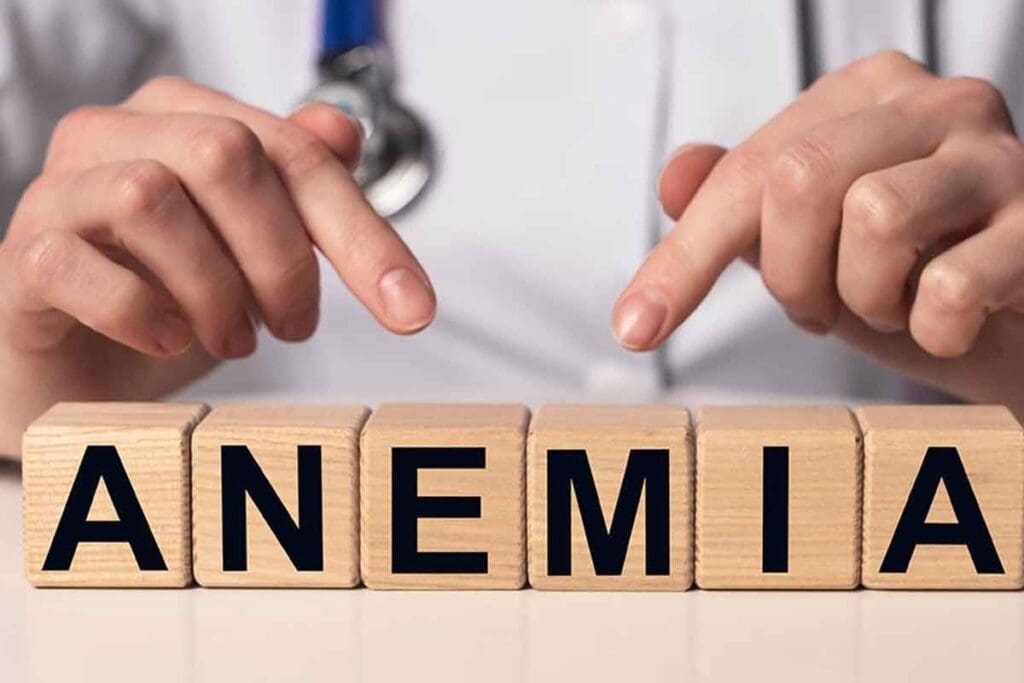Last Updated on November 17, 2025 by Ugurkan Demir

Based on recent information from reputable sources, will anemia go away, which occurs when your blood lacks enough healthy red blood cells, often improves with proper treatment and diet. Whether anemia will go away depends on its cause and severity. For iron-deficiency anemia, increasing iron-rich foods and supplements can significantly improve blood health. Some cases, like inherited disorders, may require ongoing management rather than a complete cure. Treatments such as dietary changes, supplements, and addressing underlying causes can help restore normal blood cell levels and symptoms, but it may not always “go away” if the cause persists or is chronic. Consulting a healthcare professional will provide the best personalized plan.
Doctors say anemia happens when you have fewer healthy red blood cells or hemoglobin. This makes it hard for your body to get oxygen. You might feel tired, weak, and have trouble breathing.
At Liv Hospital, we know anemia is a big health issue. It affects millions of people worldwide. We look into what causes it, its symptoms, and how to treat it. Our goal is to help you manage it well.

Anemia is more than just a condition; it’s a sign that something is wrong in our body. It happens when there are fewer red blood cells or less hemoglobin in the blood. Hemoglobin is an iron-rich protein in red blood cells that carries oxygen throughout the body. Without enough, our body’s tissues don’t get enough oxygen, causing symptoms.
In medical terms, anemia is defined as a condition where the body has a lower than normal number of red blood cells or the red blood cells do not have enough hemoglobin. This makes it hard for the body to transport oxygen to its tissues. It leads to fatigue, weakness, and shortness of breath. The medical definition of anemia includes many disorders that affect oxygen delivery to tissues.
Anemia directly impacts the body’s ability to transport oxygen. With fewer red blood cells or less hemoglobin, tissues get less oxygen. This causes symptoms like fatigue and weakness. The severity of these symptoms can vary depending on the underlying cause of anemia and its severity.
Understanding anemia’s impact on oxygen transport is key to understanding its severity. It shows why diagnosis and treatment are so important. Anemia is a complex issue that needs a detailed approach to manage well.

Anemia is a complex condition with over 400 types. Each type has its own causes and health effects. This variety means anemia can affect people differently, needing specific treatments.
Iron-deficiency anemia happens when the body doesn’t have enough iron for hemoglobin. Vitamin deficiency anemia is caused by not getting enough B12 and folate. Anemia of chronic disease is linked to long-term illnesses that make it hard to make red blood cells.
Iron-deficiency anemia is common in those with bad diets or chronic blood loss. Pregnant women often face this issue too. Vitamin deficiency anemia comes from a diet lacking vitamins or poor nutrient absorption.
There are also rare anemia types, like sickle cell anemia and thalassemia. Sickle cell anemia is a genetic disorder affecting hemoglobin. Thalassemia is about abnormal hemoglobin production. These rare types often need special treatments.
Rare anemia types bring unique challenges. Sickle cell anemia needs careful management to avoid crises. Thalassemia might require blood transfusions and other therapies.
Anemia can be caused by many things. These include what we eat, diseases, and our genes. Knowing these causes helps doctors find and treat anemia better.
Not getting enough iron, vitamin B12, and folate can lead to anemia. These nutrients are key for making healthy red blood cells. Iron deficiency anemia is very common, often because of not eating enough iron or needing more due to pregnancy or illness.
Eating foods low in essential nutrients can cause anemia. For example, not enough iron in the diet can lead to iron deficiency. Also, not getting enough vitamin B12, found in animal products, can cause anemia, mainly in vegetarians and vegans.
Blood loss is a big reason for anemia. This can happen from heavy periods, internal bleeding, or giving blood too often. Even a little bit of blood loss over time can lower iron levels and cause anemia.
Big blood losses, or hemorrhages, can also cause anemia by quickly reducing red blood cells. This kind of anemia needs quick medical help to stop the bleeding and replace lost blood.
Chronic diseases and inflammation can also cause anemia. Conditions like chronic kidney disease, rheumatoid arthritis, and cancer can lead to anemia of chronic disease.
In these cases, the body’s inflammation can mess with the production of erythropoietin. This hormone is important for making red blood cells. It can also make it harder for the body to use iron for making red blood cells.
Genetic factors also play a big role in some anemias. Conditions like sickle cell anemia and thalassemia are genetic. They affect how hemoglobin is made, leading to anemia.
These conditions are passed down in an autosomal recessive pattern. This means a person needs two copies of the defective gene (one from each parent) to have the condition.
Several factors can increase your risk of developing anemia. This condition is marked by a lack of red blood cells or hemoglobin. Knowing these risk factors is key to preventing and catching anemia early.
A diet without enough iron, vitamin B12, or folate can lead to anemia. Eating foods rich in iron like red meat, spinach, and fortified cereals can help. This can lower your risk.
Women with heavy periods are more likely to get anemic because of iron loss. Pregnancy also raises iron needs, making pregnant women more at risk for iron deficiency anemia.
Certain chronic conditions, like kidney disease, inflammatory bowel disease, and chronic infections, raise anemia risk. These conditions can make it hard for the body to make red blood cells or cause ongoing blood loss.
Genetics are a big factor in some anemia types, like sickle cell anemia and thalassemia. People with a family history of these should think about genetic counseling.
Knowing your genetic risk helps in early diagnosis and managing these conditions.
Anemia’s signs can be hard to spot, but catching them early is vital. It’s a condition where you don’t have enough red blood cells. These cells are key for carrying oxygen to your body’s tissues.
Anemia can show in many ways, affecting your life a lot. You might feel fatigue, weakness, and shortness of breath. This is because your body’s tissues aren’t getting enough oxygen, needed for energy.
Other signs include pale skin, dizziness, and headaches. If you have iron deficiency anemia, you might also get restless leg syndrome. This is when you can’t stop moving your legs.
“Anemia can cause a range of symptoms that affect not just the physical health but also the mental well-being of an individual.”
If you’re feeling many of these symptoms all the time, you should see a doctor. Getting diagnosed and treated early can make a big difference. Look for medical help if you notice:
It’s important to know the symptoms of anemia and when to get medical help. If you don’t treat anemia, it can cause serious health problems. So, getting help quickly is key.
Healthcare experts use a mix of medical history, physical checks, and lab tests to find anemia. This method helps figure out why someone has anemia and what treatment they need.
The main tool for finding anemia is the complete blood count (CBC). It looks at red blood cells, hemoglobin, and hematocrit levels. These tests tell us how bad and what kind of anemia someone has.
Blood tests for anemia might include:
For more details on anemia diagnosis and treatment
Sometimes, more tests are needed to find the cause of anemia. These might include:
By using medical history, physical checks, and lab tests, doctors can accurately diagnose anemia. They can then create a good treatment plan.
We look into when anemia might get better without doctor help. Anemia is complex, with many causes. Whether it gets better depends on the cause and how severe it is.
Mild anemia, often from not getting enough iron, might get better with diet changes or supplements. For example, eating more iron-rich foods or taking supplements can help with iron deficiency anemia.
Nutritional adjustments are key for mild anemia. Making sure you get enough iron, vitamin B12, and folate can fix anemia from these nutrient shortages.
| Nutritional Element | Food Sources | Role in Preventing Anemia |
| Iron | Red meat, spinach, beans | Crucial for hemoglobin production |
| Vitamin B12 | Meat, fish, dairy products | Essential for red blood cell production |
| Folate | Leafy greens, legumes, citrus fruits | Necessary for red blood cell formation |
Anemia from chronic diseases, genetic issues, or other complex reasons usually needs doctor help. Conditions like chronic kidney disease, cancer, or genetic disorders like sickle cell anemia need a detailed treatment plan.
When anemia is a sign of something else, treating that first is key. This might include medicines, blood transfusions, or other treatments to fix the main problem.
Knowing why you have anemia is important to see if it will get better by itself or if you need doctor help. Talking to a healthcare professional is vital for the right diagnosis and treatment plan.
Treatment for anemia varies based on the cause and type. It needs a personalized approach to manage it well. Anemia is complex, with different types needing specific treatments.
Nutritional supplements are key in treating some anemia types. For example, iron supplements help with iron deficiency anemia. Vitamin B12 injections treat pernicious anemia.
We suggest adding dietary changes to supplements for a balanced diet. Foods like red meat, spinach, and fortified cereals can help with iron deficiency anemia.
Medications are needed for some anemia cases. They help treat underlying conditions or boost red blood cell production. For instance, erythropoietin-stimulating agents (ESAs) help in chronic kidney disease anemia.
Blood transfusions are needed for severe anemia, like after significant blood loss. They quickly raise the red blood cell count by transfusing red blood cells.
In severe cases, like bone marrow failure or genetic disorders, bone marrow transplants are considered. This involves replacing the patient’s bone marrow with healthy donor marrow.
| Treatment Option | Description | Indications |
| Nutritional Supplements | Supplements to address deficiencies | Iron deficiency anemia, pernicious anemia |
| Medications | Drugs to stimulate red blood cell production or treat underlying conditions | Anemia caused by chronic kidney disease, certain chronic conditions |
| Blood Transfusions | Transfusion of red blood cells to quickly increase red blood cell count | Severe anemia, significant blood loss |
| Bone Marrow Transplants | Replacement of bone marrow with healthy donor marrow | Bone marrow failure, certain genetic disorders |
Not treating anemia can cause serious problems. Anemia means not enough healthy red blood cells to carry oxygen. This can lead to health issues that affect your life and well-being.
In the short term, anemia can make you feel fatigued, weak, and unable to perform well physically. This is because your body’s tissues don’t get enough oxygen. Without enough oxygen, you can’t produce energy.
People with untreated anemia may find it hard to:
These problems can really affect your daily life. It’s important to see a doctor if you keep feeling these symptoms.
Untreated anemia can cause serious long-term health issues. Heart problems are a big concern because the heart has to work harder without enough red blood cells. This can cause:
Also, untreated anemia can harm children’s brain development and their school performance. In adults, it can make you less productive and lower your quality of life.
Managing anemia needs a full plan. By treating the cause and getting the right treatment, you can avoid these risks. Working with doctors to create a treatment plan is key.
In summary, not treating anemia can lead to serious health problems. By knowing the risks and acting early, you can manage your condition and stay healthy.
It’s important to know about anemia in different groups. Anemia affects people of all ages in unique ways. We need to treat it differently for each group.
Young people are at high risk of anemia. This is because they grow fast and might not get enough nutrients. Iron deficiency anemia is common in this age group.
Parents should watch for signs like tiredness, pale skin, and less appetite. A diet full of iron, vitamin B12, and folate can help prevent anemia in kids.
Pregnant women need more iron because of the growing baby and their own blood volume. Iron deficiency anemia is a big problem during pregnancy. It can cause early labor and babies to be born too small.
Doctors check for anemia during prenatal care. They might suggest iron supplements. Eating foods rich in iron is also key.
Older people are also at risk for anemia. This can be due to chronic diseases, poor diet, or changes in the body with age. Conditions like kidney disease and arthritis can lead to anemia.
Older adults might also have trouble absorbing nutrients. This makes them more likely to get anemia. Regular health checks and a diet full of nutrients can help.
Healthcare providers can make a big difference by understanding the unique challenges of these groups. This way, they can improve health and quality of life.
Managing anemia isn’t just about medical treatment. Self-care and home remedies are key too. Simple strategies can help manage symptoms and improve well-being.
A balanced diet is vital for anemia management. Eating iron-rich foods like red meat, beans, and fortified cereals boosts iron levels. Foods high in vitamin C, such as citrus fruits, help iron absorption.
Don’t forget to include folate-rich foods like leafy greens and whole grains. They help prevent anemia. Also, ensure you get enough vitamin B12 from meat, dairy, and fortified plant-based milk.
Changing your lifestyle can help manage anemia symptoms. Avoiding too much tea or coffee helps iron absorption. Regular exercise tailored to your energy can also boost health and reduce fatigue.
By adopting these self-care measures and home remedies, you can actively manage anemia. It’s about making choices that support your health and well-being.
Anemia is a complex condition with many causes, symptoms, and treatments. Knowing the medical definition of anemia is key to managing it well. We’ve looked at its types, causes, symptoms, how to diagnose it, and treatment options. This gives a full summary of anemia.
Whether anemia will go away depends on its cause. Sometimes, it goes away by itself, but often, medical help is needed. Getting the right diagnosis and treatment is vital to manage it well.
Understanding the anemia definition medical helps people grasp their condition better. This knowledge lets them make smart choices about their health care. If symptoms don’t get better or get worse, it’s important to see a doctor.
Anemia is when you don’t have enough red blood cells or hemoglobin. This makes it hard for your body to get oxygen to your tissues.
There are several types of anemia. These include iron-deficiency anemia and vitamin deficiency anemia. Also, anemia of chronic disease and inherited conditions like sickle cell anemia and thalassemia.
Anemia can be caused by many things. Nutritional deficiencies, like not enough iron, vitamin B12, or folate, are common causes. Blood loss and chronic diseases also play a role. Some people are born with genetic conditions that lead to anemia.
Some people are more likely to get anemia. This includes those who don’t get enough nutrients, women with heavy periods, and pregnant women. People with chronic diseases and those with genetic conditions are also at risk.
Symptoms of anemia include feeling very tired and weak. You might also have pale skin and shortness of breath. Some people with iron deficiency anemia may experience restless leg syndrome.
Doctors use several methods to diagnose anemia. They look at your medical history and do a physical exam. They also do lab tests, like a complete blood count (CBC), to check your red blood cells and hemoglobin.
It depends on the cause and how severe the anemia is. Mild cases, like iron deficiency, might get better with diet changes or supplements. But anemia caused by chronic diseases or genetics often needs medical treatment.
Treatment options vary based on the type and cause of anemia. This can include iron or vitamin B12 supplements, medications, blood transfusions, or even bone marrow transplants in severe cases.
Untreated anemia can cause serious health problems. Short-term effects include fatigue and weakness. Long-term risks include heart issues, poor organ function, and complications during pregnancy.
You can manage anemia through self-care. Eat foods rich in iron and vitamin C to help your body absorb iron better. Also, avoid drinking tea or coffee with meals to improve iron absorption.
Yes, different groups have special considerations. Children, pregnant women, and the elderly need targeted prevention and treatment due to their unique needs. This includes factors like rapid growth, increased iron demands, and age-related changes.
https://www.acc.org/Latest-in-Cardiology/Articles/2025/02/01/42/Cover-Story-Pulmonary-Embolism
Subscribe to our e-newsletter to stay informed about the latest innovations in the world of health and exclusive offers!